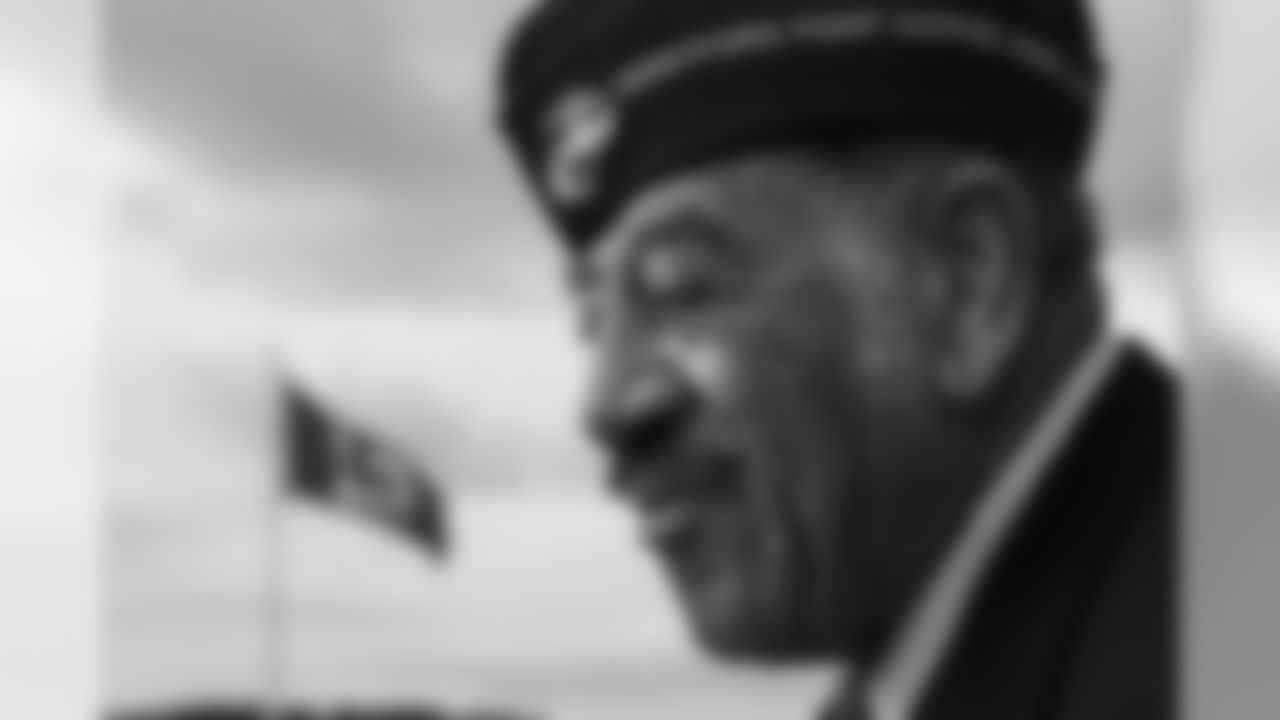The Seahawks hosted Congressional Gold Medal recipient Corporal Clayton Pitre at Wednesdays practice. He will raise the 12 Flag before kickoff of Sunday's USAA Salute to Service game.








The Seahawks had a special guest on the field on Veterans Day to break down the post-practice huddle, with U.S. Marine Corporal Clayton Pitre handling the honors.
For the 91-year-old Pitre, who was awarded a Congressional Gold Medal in 2012, and who was one of the first African-Americans allowed to join the Marines in World War II, breaking down an NFL huddle ranks pretty low on his impressive list of lifetime accomplishments, but that opportunity, along with raising the 12 Flag before Sunday's game against Arizona, is still "fantastic" according to Pitre.
Pitre will be the 12 Flag raiser for the Seahawks' "Salute to Service" game, marking the seventh straight season the Seahawks have had a veteran serve as a 12 Flag Raiser in November, joining U.S. Army Major Scott Smiley; U.S. Army Major Bruce Crandall; U.S. Army Air Corps fighter pilot Joe Moser; U.S. Army Air Corps pilot George Hickman, who was a member of the Tuskegee Airmen; U.S. Army Lieutenant Buck Compton; and World War II veteran and D-Day survivor Huston Riley.
Pitre trained at a segregated facility at Montford Point Base in North Carolina, then as a member of Platoon 126, delivered ammunition to the frontlines of Okinawa. He was part of the 82-day Okinawa siege, the last major battle in the Pacific. Pitre, who is originally from Louisiana, eventually moved to Washington after the war, in part because he saw more opportunity there for a young African-American.
"Being anxious, that's why I didn't stay in Louisiana, because they hadn't made those advancements yet," said Pitre, who graduated from Seattle University in 1968. "Coming to Washington, I registered to vote right away. It was a good life here, and I helped, with others, to bring changes about."
For Pitre, bringing about change took the form of helping to fund and build low-income housing in Seattle, as well as helping run the African-American Dollars for Scholars Foundation that helped send African-American students to college.
"I think it is something that one should do," Pitre said. "For 17 years, I helped operate the African American Dollars for Scholars Foundation… Life can be better, and you can help make it better just by using your energy. I felt like life was better for me (with a college degree), and I knew that if a kid got his diploma and went to college, he would be a heck of a lot better, and I saw that happen."






